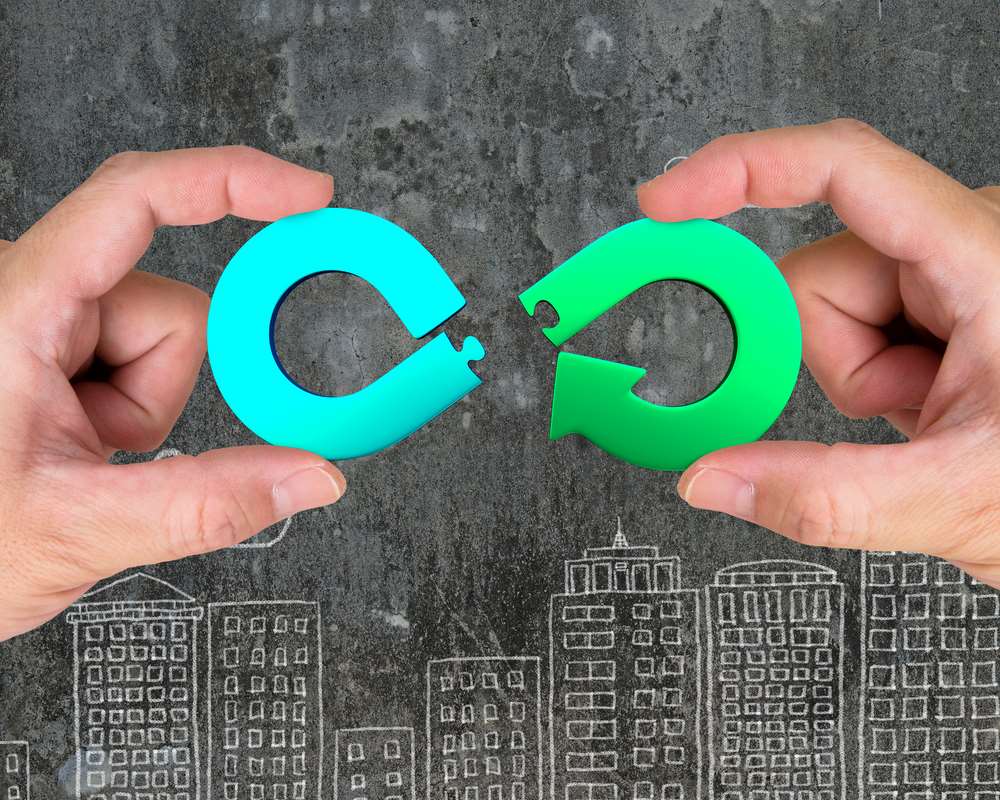Banking
Financing the Circular Economy is a new opportunity for banks
Published : 5 years ago, on
By Lan-Ling Fredell, Financial Services Expert and Mark Lancelott, Sustainability and circular economy expert at PA Consulting
Consumers care about the planet. A recent survey has shown that 90 per cent of consumers feel that brands have a responsibility to take care of the planet, and 70 per cent of consumers are more than willing to pay more for products and services that protect the environment or don’t infringe on human rights. These types of consumer trends are apart of the reason why the UN’s Business and Sustainable Development Commission forecast sustainability to be worth at least $12 trillion a year by 2030 to business.
But sustainability today is much more than what is on the traditional green agenda. Technology and consumer trends are enabling organisations to embed sustainability right into the core of how they think about, design for and do business – a framework that’s restorative and regenerative by design.
Financing the transition to Circular Economy is an opportunity for banks. Changes to the way we use resources, think about owning products and value longevity mean that banks can gain an advantage and progress further by rethinking the products they offer to their customers.
Banks’ new circular clients are already here
We are seeing innovative companies already capitalising on the huge opportunity of the Circular Economy – and it’s not just the small start-ups. Large retailers such as IKEA are using more recycled materials, developing circular supply chains and exploring innovative production techniques. UK mobile network O2, as another example, is offering an end-to-end programme for phone refurbishment and disposal. Adidas is bringing out a new shoe in 2020 made out of just one plastic material which is fully recyclable. And AB InBev has plans for all its products to use returnable or majority-recycled packaging by 2025.
Such large corporates need their banks to understand the changes in their financing needs. Proactive banks can win new business by collaborating with these corporates to provide financing for new products and ecosystems. A number of financing opportunities lie within the entire spectrum from small ticket consumer lending and leasing to large project financing, green corporate bonds and equity risk capital.
On the other end of the size spectrum, there are start-ups launching as fully circular businesses. An EU survey showed that 73 per cent of European SMEs have invested in the transition to circular models in the last three years. But access to finance is a key issue, with 27 per cent of SMEs with at least one Circular Economy initiative finding it hard to access funding.
Banks have started to react to the needs of the Circular Economy
Leading financial institutions are already targeting services to meet the emerging demand for Circular Economy financing. So far, they’re focusing on building knowledge and initial financial products. Dutch banks ABN AMRO, ING and Rabobank, for example, all announced they will help Circular Economy businesses and collaborate to share knowledge. Meanwhile, BNP Paribas has established Kintessia, a B2B marketplace for leasing agriculture, transport and construction equipment.
Understanding and developing financial products and services for the Circular Economy will require new competencies and new ways of thinking. While some standard banking products and services may be applied directly to the Circular Economy, other products will require rethinking to adjust to a circular world. It is important that financial institutions start to understand the business models and associated complexity to support, and benefit from, the transition. For financial institutions to get a foothold on this rapidly emerging area, they need to answer three questions:
- what’s happening in sustainability and the Circular Economy, and how should my organisation respond?
- what products and services should my organisation provide to capitalise on the market opportunity of the Circular Economy?
- how can my organisation embed sustainability in everything it does?
Right now, Circular Economy principles aren’t mainstream. But growing consumer demand and improvements in technology have the potential to accelerate this transition. Banks that don’t understand circularity will find themselves less competitive, both in meeting the needs of their existing and future clients, and in helping to build a more sustainable world.
For more information, visit https://www.paconsulting.com/sustainability

-
Finance3 days ago
Phantom Wallet Integrates Sui
-
Banking4 days ago
Global billionaire wealth leaps, fueled by US gains, UBS says
-
Finance3 days ago
UK firms flag over $1.4 billion in labour costs from increase in national insurance, wages
-
Banking4 days ago
Italy and African Development Bank sign $420 million co-financing deal







